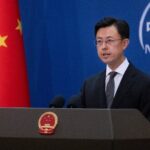As President Joe Biden approaches the end of his term, he portrays himself as the “steady hand” the world needed to navigate turbulent times following Donald Trump’s presidency. Biden’s tenure has been marked by significant foreign policy decisions, from managing the aftermath of the chaotic withdrawal from Afghanistan to rallying allies against Russia’s aggression in Ukraine and addressing evolving tensions in the Middle East.
Biden’s Foreign Policy Legacy: Key Highlights
- Afghanistan Withdrawal
- Background: The withdrawal in August 2021 marked the end of America’s two-decade-long military presence in Afghanistan.
- Criticism: It was heavily criticized for its chaotic execution, including the Taliban’s swift takeover and the tragic Kabul airport attack.
- Biden’s Defense: The President framed the withdrawal as a necessary move to end “forever wars” and refocus resources on emerging global threats.
- Ukraine-Russia Conflict
- Support for Ukraine: Biden played a central role in uniting NATO and other allies to support Ukraine through military aid and sanctions against Russia.
- Significance: His leadership solidified the U.S.’s position as a defender of democracy on the global stage.
- Challenges: Critics argue that prolonged support for Ukraine risks escalating tensions with Russia and straining resources.
- Middle East Diplomacy
- Abraham Accords: Biden worked to expand upon the Trump-era peace agreements between Israel and Arab nations.
- Israel-Hamas War: His administration’s balanced approach during the 2023 Gaza conflict emphasized Israel’s right to self-defense while advocating for humanitarian aid to Palestinians.
- Iran Relations: Efforts to revive the Iran nuclear deal faced obstacles, with growing concerns about Iran’s regional influence and nuclear ambitions.
Contrasting Biden with Trump
- Multilateralism vs. Unilateralism
Biden prioritized restoring alliances and working through international institutions like NATO and the UN, contrasting sharply with Trump’s “America First” approach. - Tone and Diplomacy
His measured and empathetic style of diplomacy aimed to rebuild trust with allies alienated during Trump’s presidency. - Trade and Global Cooperation
Biden avoided major trade wars, instead focusing on collaborative efforts like the Indo-Pacific Economic Framework to counter China’s growing influence.
Challenges and Criticism
- Economic Fallout of Foreign Policies
- Energy Prices: Sanctions on Russia disrupted global energy markets, contributing to rising fuel costs.
- Trade Dependencies: Critics highlight that Biden’s trade strategies haven’t significantly reduced reliance on China.
- Afghanistan Fallout
- The botched withdrawal tarnished Biden’s reputation, raising questions about the administration’s preparedness and execution.
- Polarization in U.S. Foreign Policy
- Domestic critics argue that Biden’s policies reflect a return to the globalist agenda that Trump rejected, dividing public opinion.
Biden’s Claim of a Steady Hand
In contrast to Trump’s often unpredictable foreign policy, Biden emphasized stability, diplomacy, and collaboration:
- Consistency: He maintained a steady course in NATO commitments and U.S.-China relations.
- Leadership: Biden positioned the U.S. as a global leader in addressing the climate crisis, public health, and human rights.
- Credibility Restoration: His administration worked to repair fractured relationships with traditional allies.
What Lies Ahead?
As Biden reflects on his presidency, his foreign policy record remains a topic of intense debate:
- Enduring Legacy: His success in shaping a united Western response to Russia may define his presidency, much like Reagan’s stance against the Soviet Union.
- Open Questions: Issues like China’s rising influence, Middle East stability, and the long-term impacts of the Afghanistan withdrawal leave room for further analysis.
- Succession: Whether his policies are continued or reversed will depend on the next administration’s priorities.
Conclusion
President Biden’s claim of being the steady hand the world needed underscores his efforts to restore global stability and multilateral diplomacy. While his tenure has been marked by significant achievements, including strengthening NATO and supporting Ukraine, it also faced challenges, particularly in Afghanistan and the Middle East. As he prepares to leave office, his foreign policy legacy will likely shape discussions on U.S. leadership in an evolving global order.





